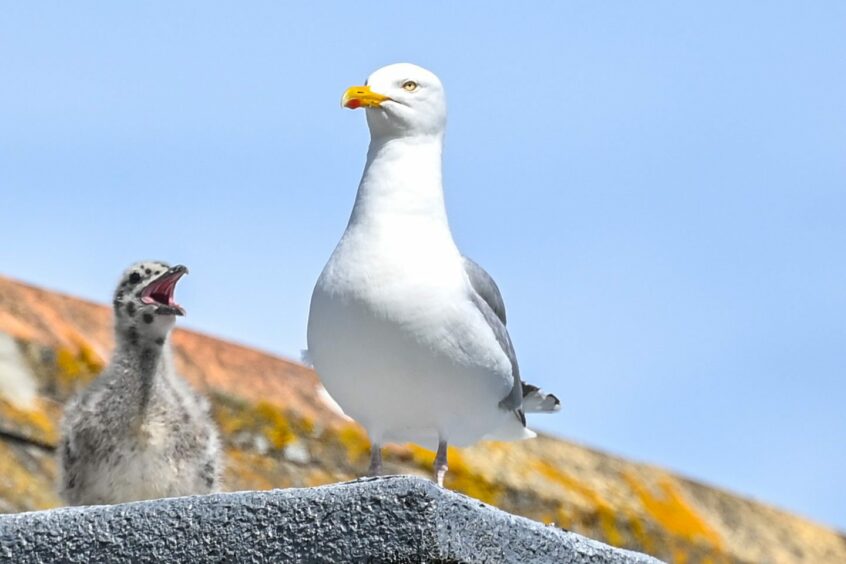
Global energy consultancy Xodus has added ornithological services to its specialist decommissioning offering.
The Aberdeen-headquartered firm is aiming to establish itself as the UK focal point and industry lead for information about the impact of birds on offshore operations and decommissioning through its Offshore Bird Portal. The portal includes all aspects of bird management and survey support, offsetting the challenges that the presence of nesting birds on offshore installations can present, particularly during decommissioning activities.
In recent years, nesting birds have caused increasing environmental and cost performance challenges for operators preparing for offshore removals. With heavy lift vessels (HLVs) potentially costing up to £800,000 per day, there can be significant financial and schedule implications resulting from conflicts between seabird breeding periods and HLV operations.
The protection of wild birds, their eggs and nests under the Conservation of Offshore Marine Habitats & Species Regulations 2017 means that certain activities may be restricted or prohibited at specific times of the year (and will depend on the species of wild bird that may be present and/or in the geographical area).
The Offshore Petroleum Regulator for Environment and Decommissioning (OPRED) has strongly advised that industry should consider whether the presence of wild birds may affect proposed activities, including decommissioning and plug and abandonment activities.
Current data availability on birds utilising offshore platforms remains sparse and geographically limited. Management of sightings had previously been done by the North Sea Bird Club (NSBC), which ran a successful membership scheme for 40 years.
First launched in 1979, the NSBC was established to study the impact of oil platforms on migration patterns. Over its four decades, more than 150,000 records of birds, bats, insects, and mammals spotted on or near the installations were registered. However, membership ceased a few years ago following the 2014 downturn and an increase in decommissioned platforms.
Changes to working practices, such as health and safety guidelines restricting the use of cameras and mobile phones on platforms decks, also contributed.
Gareth Jones, Decommissioning Division Manager at Xodus commented: “Since the demise of the NSBC, the industry has lacked a scheme or tool that can effectively monitor and manage birds offshore. We have developed a suite of services that minimise disruption to offshore operations and sea birds. Through a tailored training programme and a digital seabird management portal, we are providing long-term cost-effective monitoring programmes that support operators with sound evidence for effective decision making.”
To underpin this, Xodus has developed a central repository of bird data that is accessible to operators and summarises information on seabirds foraging and roosting and migration for users of the platforms.
“Our portal system provides a simple, but highly effective interface for reporting, consolidating, and managing bird sighting data on offshore platforms and vessels.”
The basic service will initially be free to operators to contribute to and provides access to shared information, relevant to their location. However, there is also a premium service that allows access to additional support including ID workshops and training for offshore personnel and bird distribution data and information in other regions/locations to support Environmental Investigation Agency (EIA). It offers onshore support with identification of species and GIS bird data mapping. This system has been deployed to operators of several North Sea assets and is already bring value in reducing costs, carbon emissions and retraining opportunities for personnel within the sector.
Available to all North Sea operators, this latest solution adds further value to Xodus’ range of decommissioning survey and remediation requirements which already includes surveys and monitoring provision and deterrence and remediation support.
Xodus’ specialists provide environmental, engineering and advisory support to decommissioning projects globally, with an extensive track record for programme support and delivery throughout the energy sector, advising operators as well as government bodies.
Mr Jones added: “By helping to navigate the key stages of the decommissioning process through careful and strategic consideration of the activities, sequences and durations, logic drivers, interface points and interdependencies, we can enable better efficiencies to be realised and avoid unnecessary pitfalls.
“Our road mapping tools are aligned to regional guidelines which help our clients demonstrate compliance while providing flexibility to adapt to the developing landscapes and changing circumstances.”
Recommended for you

 © Supplied by Xodus
© Supplied by Xodus